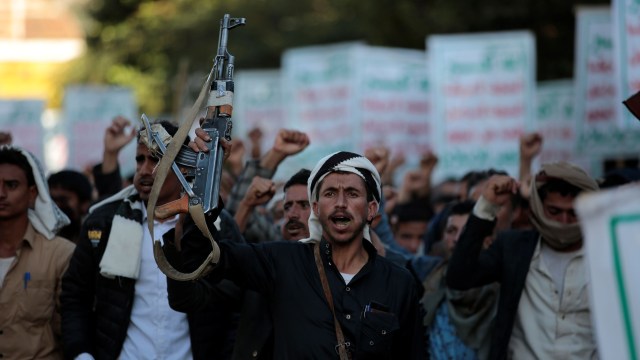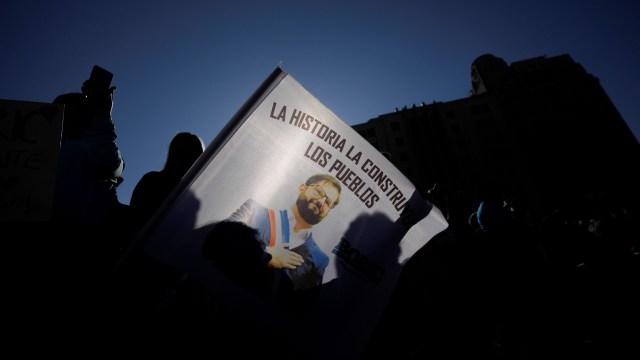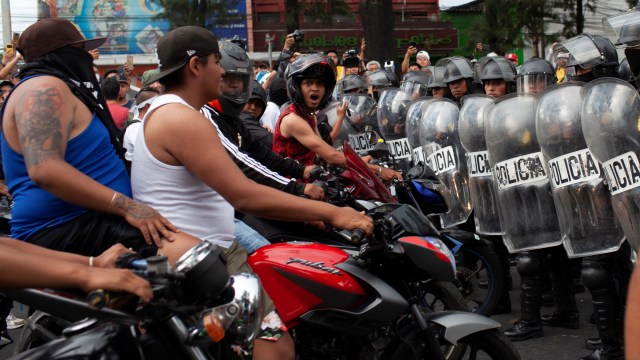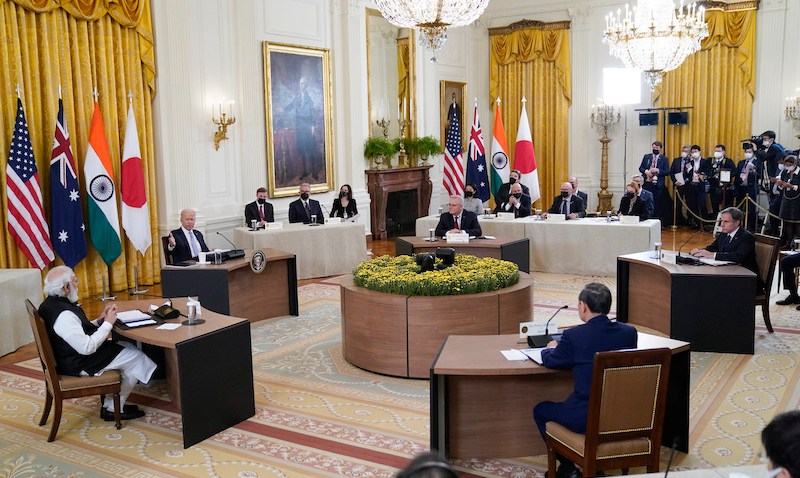Today at WPR, we’re covering the Yemen war’s state of limbo and Chile’s new draft constitution.
But first, here’s our take on today’s top story.
U.S.-Australia: PM Anthony Albanese visited the White House yesterday for just the fourth state visit since President Joe Biden took office. In addition to reaffirming partnerships on climate goals, technology and national security, the two leaders also announced a new deal with Google to run undersea cables providing internet access to eight Pacific Island nations. (AP; Reuters)
Our Take: As is evident from the state visit, Australia is a significant anchor for the U.S. strategy for countering China in the Indo-Pacific region, perhaps even more so than India, whose PM Narendra Modi also received a state visit earlier this year. Unlike India, Australia is a longstanding treaty ally with the U.S. and has not seen any notable democratic erosion in recent years, which is important to the “democracy vs. autocracy” narrative that Biden has pushed in framing competition with China.
Get the Daily Review sent straight to your inbox every weekday.
The longstanding U.S.-Australia alliance has also deepened in recent years. Until recently, Canberra had been engaged in internal debates about Washington’s ability to maintain primacy in Asia, leading some prominent figures in Australian national security circles to advocate hedging on ties with Washington. But as U.S. and Australian interests converged over the past decade, two successive governments in Canberra have now more actively pursued a coalition designed to balance China’s rise in the Asia-Pacific.
That can be seen in the trilateral AUKUS security agreement, which also includes the U.K., as well as the recent reinvigoration of the Quadrilateral Security Dialogue, or Quad, which also includes Japan and India. And as the just-announced undersea cable deal illustrates, Australia has also used its regional influence to assist the U.S. in countering China among the strategically located Pacific Island nations.
The decision to align more clearly with the U.S. was in part driven by increasing tensions between Australia and China, particularly under former PM Scott Morrison. Albanese has made significant efforts to decrease those tensions, leading to a noticeable thaw in relations.
Still, it’s unclear how long that thaw can last, given that Albanese is essentially pursuing the same objective as his predecessor: a regional balance-of-power system “where no country dominates and no country is dominated,” as Australia’s foreign minister put it earlier this year. As Michael Clarke wrote last week, however, “Balance-of-power systems are ultimately not geared toward avoiding war. Rather, they are geared toward avoiding hegemony, if necessary at the price of war.”


Yemen’s ‘No War, No Peace’ Limbo Is Holding—for Now
For the past year, Yemen has been in an anxious state of limbo. Its messy, regionalized conflict, which pits fractious government forces backed by Saudi Arabia and the United Arab Emirates against the Iran-aligned Houthi movement, is on hold but unresolved.
As Peter Salisbury writes, that’s unlikely to change—for the better, at least—soon. Even if Saudi Arabia and the Houthis agree to a formal cease-fire in the coming weeks or months, the country will remain stuck in the liminal space Yemenis call “no war, no peace” for some time to come.
Chile’s New Draft Constitution Is Boric’s Latest Setback
Just two years ago, then-35-year-old Gabriel Boric won Chile’s presidential election by capitalizing on the energy of a 2019 protest movement that demanded fundamental changes to the country, beginning with rewriting its outdated dictatorship-era constitution.

Since then, however, hopes for radical change seem to have evaporated.
The latest disappointment came earlier this month, when the committee charged with coming up with a new constitution—the second attempt after a first one was resoundingly rejected by voters—approved a draft that would, in fact, make Chile more conservative, columnist Frida Ghitis writes.

We want to hear your take on the issues we cover. We’ll select one person from those who answer the question below to receive a free one-month extension of their WPR subscription.
Last week, news broke of a deal between the government of Venezuelan President Nicolas Maduro, the country’s political opposition and—unofficially—the United States guaranteeing a competitive election in 2024. In return, the Biden administration announced that Washington would lift sectoral sanctions on Venezuela’s oil and gold industries.
This week’s question: Should the U.S. have rolled back sanctions on Venezuela in order to ensure a competitive election there next year?
For more context: Read James Bosworth’s column on the agreement.

Slovakian PM Robert Fico has announced that his country will no longer supply military aid to Ukraine, but would still supply humanitarian aid, following through on promises he made during his recent election campaign. The decision is the first reversal on military aid to Ukraine by a Western country.
Fico, a populist who has echoed Russian arguments about the war in Ukraine, won the premiership following Slovakia’s parliamentary elections last month. In his preview of the election, Andrew MacDowall wrote that a Fico victory “would put at risk Bratislava’s surprisingly enterprising and robust approach to the war in Ukraine, which borders the country to the east.”

In Slovakia, Fico’s Return Has Europe—and Ukraine—on Edge
Sept. 27, 2023 | Robert Fico looks set to win Slovakia’s Sept. 30 elections, with implications for the country’s pro-EU orientation and support for Ukraine. Read more.
A top U.S. official said Washington could apply sectoral sanctions against Guatemala if the democratic process there is not respected. The U.S. is among a number of countries that have accused Guatemalan authorities of trying to block President-elect Bernardo Arevalo from taking office in January, as scheduled.
For weeks, protesters across Guatemala have taken to the streets, convinced—for good reason—that the ruling political and economic elites are attempting to undo the results of the country’s recent presidential election and remain in power unconstitutionally. As columnist James Bosworth wrote two weeks ago, international pressure is still needed to guarantee a successful transition in Guatemala.
Guatemala’s Democratic Transition Isn’t Out of the Woods Yet
Oct. 16, 2023 | Guatemalans are protesting to ensure the democratic transition for President-elect Bernardo Arevalo isn’t derailed by corrupt politics. Read more.

Former presidential candidate Patricia Bullrich, who placed third in Argentina’s first-round election on Sunday, endorsed the second-place finisher Javier Millei, a radical libertarian economist, for the run-off.
Read our take on the first round of the election in Monday’s Daily Review.
More From WPR
- Alexander Clarkson on the EU and geopolitics.
- Laurence Broers on Nagorno-Karabakh.
- Charli Carpenter on the Israel-Hamas war.
- Joshua Kurlantzick on transnational repression in Southeast Asia.

